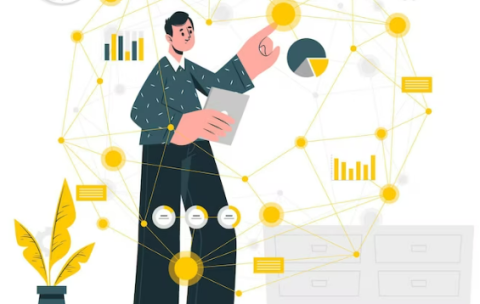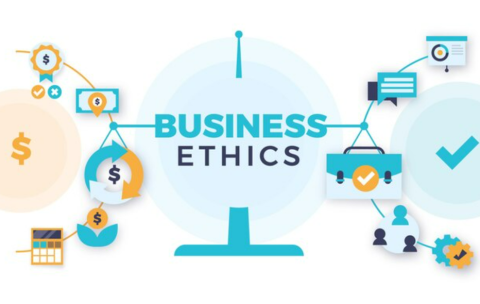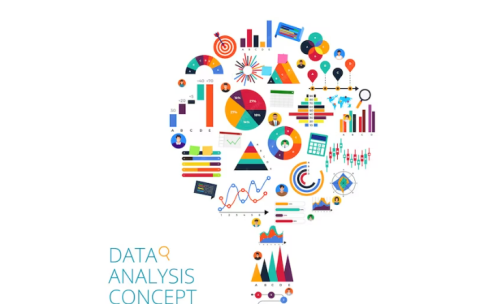Collaborative Project Management in Analytics
Collaborative project management in analytics is crucial for orchestrating complex …
What you'll learn
Week 1: Introduction to Collaborative Project Management in Analytics (2 hours)
Session 1: Course Overview and Objectives
Introduction to collaborative project management
Overview of the role of analytics in project management
Session 2: Importance of Collaboration in Data-Driven Environments
Understanding the significance of teamwork in analytics projects
Overview of collaboration tools and platforms
Week 2-3: Project Management Fundamentals (6 hours)
Session 3: Basics of Project Management in Analytics
Introduction to project planning, execution, and monitoring
Key project management methodologies (Agile, Scrum, etc.)
Session 4: Creating a Project Charter and Scope Statement
Defining project goals and objectives
Establishing project scope and boundaries
Session 5: Risk Management in Analytics Projects
Identifying and mitigating risks in analytics projects
Strategies for risk assessment and contingency planning
Week 4-5: Collaborative Analytics Tools and Methodologies (6 hours)
Session 6: Collaborative Data Analysis Techniques
Team-based data exploration and analysis
Leveraging collaborative analytics tools
Session 7: Integrating Analytics into Project Planning
Incorporating data insights into project planning and decision-making
Balancing analytical rigor with project timelines
Session 8: Agile Project Management for Analytics
Introduction to Agile principles in analytics projects
Sprint planning and execution in analytics teams
Week 6-7: Soft Skills for Collaborative Project Management (6 hours)
Session 9: Effective Communication in Project Teams
Clear communication strategies for project success
Tailoring communication to different team members and stakeholders
Session 10: Team Building and Conflict Resolution
Strategies for building and managing effective project teams
Resolving conflicts within project teams
Session 11: Leadership in Collaborative Analytics Projects
Leadership skills for guiding analytics teams
Motivating and inspiring team members
Week 8: Capstone Project and Review (2 hours)
Session 12: Capstone Project Presentation
Students present their collaborative analytics projects
Peer and instructor feedback
Critical Thinking for Data Analysis
Critical thinking is a fundamental skill in data analysis, shaping …
What you'll learn
Week 1: Introduction to Critical Thinking in Data Analysis (2 hours)
Session 1: Course Overview and Objectives
Introduction to the importance of critical thinking in data analysis
Overview of the course structure and goals
Session 2: Foundations of Critical Thinking
Defining critical thinking in the context of data analysis
Identifying the key components of critical thinking
Week 2-3: Critical Thinking Tools and Techniques for Data Analysis (6 hours)
Session 3: Problem Definition and Framing in Data Analysis
Techniques for defining and framing problems in data analysis
Importance of clearly articulated problem statements
Session 4: Data Collection and Evaluation Strategies
Evaluating the quality and relevance of data sources
Methods for collecting reliable and meaningful data
Session 5: Analytical Techniques and Models
Introduction to various analytical techniques
Selecting appropriate models for different types of data
Week 4-5: Applying Critical Thinking in Data Interpretation (6 hours)
Session 6: Data Visualization and Interpretation
Effectively communicating insights through visualizations
Interpreting and analyzing patterns in data visualizations
Session 7: Identifying Biases and Assumptions
Recognizing and mitigating biases in data analysis
Addressing assumptions that may impact analysis
Session 8: Scenario Analysis and Decision Making
Using critical thinking to analyze scenarios and make data-driven decisions
Considering uncertainties and risk in decision-making
Week 6-7: Soft Skills in Critical Thinking for Data Analysis (6 hours)
Session 9: Communication of Analytical Findings
Communicating complex data insights effectively
Tailoring communication for different stakeholders
Session 10: Collaboration and Team-Based Critical Thinking
Techniques for fostering critical thinking within a team
Collaborative problem-solving in data analysis projects
Session 11: Leadership and Critical Thinking in Analytics
The role of leadership in promoting a culture of critical thinking
Leading and managing critical thinking in analytics teams
Week 8: Capstone Project and Review (2 hours)
Session 12: Capstone Project Presentation
Students present their critical thinking applied to a data analysis project
Peer and instructor feedback
Additional Considerations:
Practical Exercises: Include hands-on exercises and case studies to apply critical thinking skills in real-world scenarios.
Guest Speakers: Invite data analysts, industry experts, and thought leaders to share insights on the importance of critical thinking in data analysis.
Assessment: Utilize quizzes, assignments, and the capstone project to assess students' critical thinking abilities in the context of data analysis.
Ethics and Responsibility in Data Management
Customize the course content based on the specific needs of …
What you'll learn
Week 1: Introduction to Ethics in Data Management (2 hours)
Session 1: Course Overview and Objectives
Introduction to the importance of ethics in data management
Overview of the course structure and learning objectives
Session 2: Foundations of Ethical Decision Making
Introduction to ethical theories and frameworks
Applying ethical principles to data management
Week 2-3: Ethical Challenges in Data Collection and Storage (6 hours)
Session 3: Privacy and Confidentiality
The importance of privacy in data management
Strategies for ensuring confidentiality in data handling
Session 4: Informed Consent and Data Ownership
Exploring informed consent in data collection
Understanding issues related to data ownership
Session 5: Security and Cybersecurity in Data Management
Addressing ethical considerations in data security
Strategies for safeguarding data from cybersecurity threats
Week 4-5: Ethical Data Analysis and Reporting (6 hours)
Session 6: Bias and Fairness in Data Analysis
Identifying and mitigating biases in data analysis
Ensuring fairness in algorithmic decision-making
Session 7: Transparency and Accountability in Data Reporting
Ethical considerations in presenting and reporting data
Strategies for ensuring transparency and accountability
Session 8: Responsible Data Sharing and Collaboration
Guidelines for responsible data sharing
Addressing ethical challenges in collaborative data projects
Week 6-7: Soft Skills for Ethical Data Management (6 hours)
Session 9: Effective Communication of Ethical Considerations
Communicating ethical considerations to non-technical stakeholders
Developing communication strategies for ethical data management
Session 10: Team Collaboration in Ethical Data Projects
Fostering a culture of ethical decision-making within a team
Strategies for addressing ethical challenges as a team
Session 11: Leadership and Ethical Data Management
The role of leadership in promoting ethical data practices
Leading ethically in data-driven environments
Week 8: Capstone Project and Review (2 hours)
Session 12: Capstone Project Presentation
Students present their ethical data management projects
Peer and instructor feedback
Creative Problem-Solving in Data Analytics
Creative problem-solving is a vital skill in the field of …
What you'll learn
Week 1: Introduction to Creative Problem-Solving in Data Analytics (2 hours)
Session 1: Course Overview and Objectives
Introduction to the importance of creative problem-solving in data analytics
Overview of the course structure and learning objectives
Session 2: Foundations of Creative Problem-Solving
Understanding creativity in problem-solving
Exploring the relationship between creativity and innovation in data analytics
Week 2-3: Problem Definition and Data Exploration (6 hours)
Session 3: Defining Analytical Problems Creatively
Techniques for framing problems in a creative way
Identifying opportunities for innovation in data analytics
Session 4: Data Exploration and Ideation
Creative approaches to exploring and understanding data
Brainstorming and ideation techniques for data-driven problem-solving
Session 5: Design Thinking in Data Analytics
Applying design thinking principles to data analytics
Prototyping and testing ideas in the context of data problems
Week 4-5: Analytical Techniques and Modeling (6 hours)
Session 6: Advanced Analytical Techniques for Problem-Solving
Introduction to advanced analytics tools and techniques
Selecting appropriate models for creative problem-solving
Session 7: Predictive Analytics and Scenario Planning
Using predictive analytics for creative problem-solving
Scenario planning for anticipating and addressing future challenges
Session 8: Optimization and Decision-Making
Optimizing solutions through analytical methods
Decision-making under uncertainty in data analytics
Week 6-7: Soft Skills for Creative Problem-Solving (6 hours)
Session 9: Effective Communication of Analytical Findings
Communicating complex data-driven solutions effectively
Tailoring communication for different stakeholders
Session 10: Collaboration and Team-Based Problem-Solving
Techniques for fostering creative problem-solving within a team
Collaborative approaches to tackling complex data challenges
Session 11: Leadership in Creative Problem-Solving
The role of leadership in promoting a culture of creativity and innovation
Leading and managing creative problem-solving in analytics teams
Week 8: Capstone Project and Review (2 hours)
Session 12: Capstone Project Presentation
Students present their creatively solved data analytics projects
Peer and instructor feedback
Leadership Skills for Data-Driven Decision Making
Leadership skills are essential in the context of data-driven decision-making, …
What you'll learn
Week 1: Introduction to Leadership in Data-Driven Environments (2 hours)
Session 1: Course Overview and Objectives
Introduction to the significance of leadership in data-driven decision-making
Overview of the course structure and learning objectives
Session 2: The Role of Leadership in Analytics
Understanding the intersection of leadership and data analytics
Key leadership principles in data-driven environments
Week 2-3: Leadership Foundations in Data Analytics (6 hours)
Session 3: Understanding Data and Analytics for Leaders
Introduction to key data and analytics concepts for leaders
Building a foundational understanding of analytics terminology
Session 4: Leading Cross-Functional Analytics Teams
Strategies for leading diverse teams in data analytics projects
Collaborative leadership in cross-functional environments
Session 5: Data-Driven Decision-Making Frameworks
Overview of frameworks for effective data-driven decision-making
Balancing intuition and data in leadership decisions
Week 4-5: Advanced Leadership Skills in Data Analytics (6 hours)
Session 6: Adaptive Leadership in Data-Driven Environments
Adapting leadership styles to the evolving nature of data projects
Leading through uncertainty and change
Session 7: Ethical Leadership in Data Analytics
Ethical considerations in data-driven decision-making
Leading with integrity and responsibility
Session 8: Strategic Leadership in Data Analytics
Developing a strategic mindset for data-driven leadership
Aligning data initiatives with organizational goals
Week 6-7: Soft Skills for Data-Driven Leadership (6 hours)
Session 9: Effective Communication in Data Analytics Leadership
Communicating data insights to non-technical stakeholders
Tailoring communication for different audiences
Session 10: Building and Leading High-Performance Analytics Teams
Strategies for building and leading successful analytics teams
Motivating and developing team members
Session 11: Negotiation and Influencing Skills in Data Leadership
Negotiation strategies in data-driven decision-making
Influencing stakeholders through data-driven insights
Week 8: Capstone Project and Review (2 hours)
Session 12: Capstone Project Presentation
Students present their leadership-focused data analytics projects
Peer and instructor feedback
Strategic Communication and Influence
Strategic Communication and Influence are essential skills for MBA students, …
What you'll learn
Module 1: Essentials of Strategic Communication (4 hours)
Session 1.1: Foundations of Strategic Communication (2 hours)
Introduction to strategic communication: concepts and importance.
Role of strategic communication in business and leadership.
Session 1.2: Crafting Effective Messages (2 hours)
Developing clear, persuasive communication strategies.
Tailoring messages to different audiences and channels.
Module 2: Principles of Influence and Persuasion (4 hours)
Session 2.1: Art of Persuasion (2 hours)
Theories and techniques of persuasion.
Ethical considerations in persuasive communication.
Session 2.2: Persuasive Storytelling (2 hours)
Utilizing storytelling as a powerful tool for influence.
Crafting and delivering compelling narratives.
Module 3: Communication Channels and Media (4 hours)
Session 3.1: Effective Use of Communication Channels (2 hours)
Selecting and utilizing appropriate communication channels.
Digital and social media strategies.
Session 3.2: Media Relations and Public Speaking (2 hours)
Engaging with the media effectively.
Developing public speaking and presentation skills.
Module 4: Organizational Communication (4 hours)
Session 4.1: Internal Communication Strategies (2 hours)
Enhancing internal communication within organizations.
Building and sustaining a positive organizational culture.
Session 4.2: Crisis Communication Management (2 hours)
Strategies for effective communication during crises.
Case studies on crisis communication.
Module 5: Practical Application and Case Studies (4 hours)
Session 5.1: Developing a Strategic Communication Plan (2 hours)
Workshop on creating a strategic communication plan.
Real-world case study analysis and discussions.
Session 5.2: Role-Playing and Simulations (2 hours)
Interactive exercises in strategic communication and influence.
Practicing negotiation and persuasive techniques.
Project Management and Team Collaboration
Project Management and Team Collaboration are integral skills for MBA …
What you'll learn
Module 1: Project Management Fundamentals (4 hours)
Session 1.1: Introduction to Project Management (2 hours)
Key concepts, methodologies, and life cycle of project management.
Understanding project scope, timeline, and resource allocation.
Session 1.2: Project Planning and Execution (2 hours)
Tools and techniques for effective project planning.
Execution strategies and managing project deliverables.
Module 2: Team Collaboration and Dynamics (4 hours)
Session 2.1: Building Effective Teams (2 hours)
Principles of forming, storming, norming, and performing in teams.
Building trust and effective communication within teams.
Session 2.2: Collaborative Tools and Techniques (2 hours)
Leveraging technology for team collaboration.
Techniques for remote and virtual team collaboration.
Module 3: Risk Management and Problem Solving (4 hours)
Session 3.1: Identifying and Managing Project Risks (2 hours)
Techniques for risk identification and assessment.
Developing risk mitigation and contingency plans.
Session 3.2: Creative Problem-Solving in Projects (2 hours)
Applying creative thinking to solve project challenges.
Case studies on innovative problem-solving in projects.
Module 4: Leadership and Communication in Projects (4 hours)
Session 4.1: Leadership Skills for Project Managers (2 hours)
Leading projects effectively: leadership styles and skills.
Motivating and inspiring project teams.
Session 4.2: Effective Communication in Projects (2 hours)
Importance of clear and consistent communication.
Communication strategies with stakeholders and team members.
Module 5: Practical Application and Case Studies (4 hours)
Session 5.1: Project Management Simulation (2 hours)
Hands-on project management simulation exercises.
Real-world application of project management skills.
Session 5.2: Analyzing Project Management Case Studies (2 hours)
Discussion and analysis of successful and failed projects.
Lessons learned and best practices.
Negotiation and Conflict Resolution
Negotiation and Conflict Resolution are essential skills in the business …
What you'll learn
Module 1: Essentials of Negotiation (4 hours)
Session 1.1: Fundamentals of Negotiation (2 hours)
Understanding negotiation principles and stages.
Differentiating between various negotiation styles and approaches.
Session 1.2: Preparing for Negotiations (2 hours)
Importance of preparation and strategy in negotiation.
Role-playing exercises on negotiation preparation.
Module 2: Advanced Negotiation Techniques (4 hours)
Session 2.1: Psychological Aspects of Negotiation (2 hours)
Leveraging psychological principles in negotiation.
Handling emotions and biases in negotiation.
Session 2.2: Complex Negotiation Scenarios (2 hours)
Navigating multi-party and high-stakes negotiations.
Case studies on complex negotiation scenarios.
Module 3: Understanding and Managing Conflict (4 hours)
Session 3.1: Dynamics of Conflict (2 hours)
Types and sources of conflict in organizational settings.
Techniques for conflict analysis and understanding.
Session 3.2: Conflict Resolution Strategies (2 hours)
Effective strategies and models for conflict resolution.
Role-playing scenarios for applying conflict resolution skills.
Module 4: Communication in Negotiation and Conflict (4 hours)
Session 4.1: Communication Skills for Negotiation and Conflict (2 hours)
Role of effective communication in negotiation and conflict resolution.
Developing active listening and assertive communication skills.
Session 4.2: Negotiation and Conflict Resolution in Diverse Cultures (2 hours)
Cross-cultural considerations in negotiation and conflict resolution.
Case studies on cross-cultural negotiation challenges.
Module 5: Practical Application and Case Studies (4 hours)
Session 5.1: Negotiation Simulations (2 hours)
Engaging in simulated negotiation exercises.
Analysis and feedback on negotiation outcomes.
Session 5.2: Conflict Resolution Workshops (2 hours)
Workshops on practical conflict resolution techniques.
Group activities and discussions on real-world conflict scenarios.










